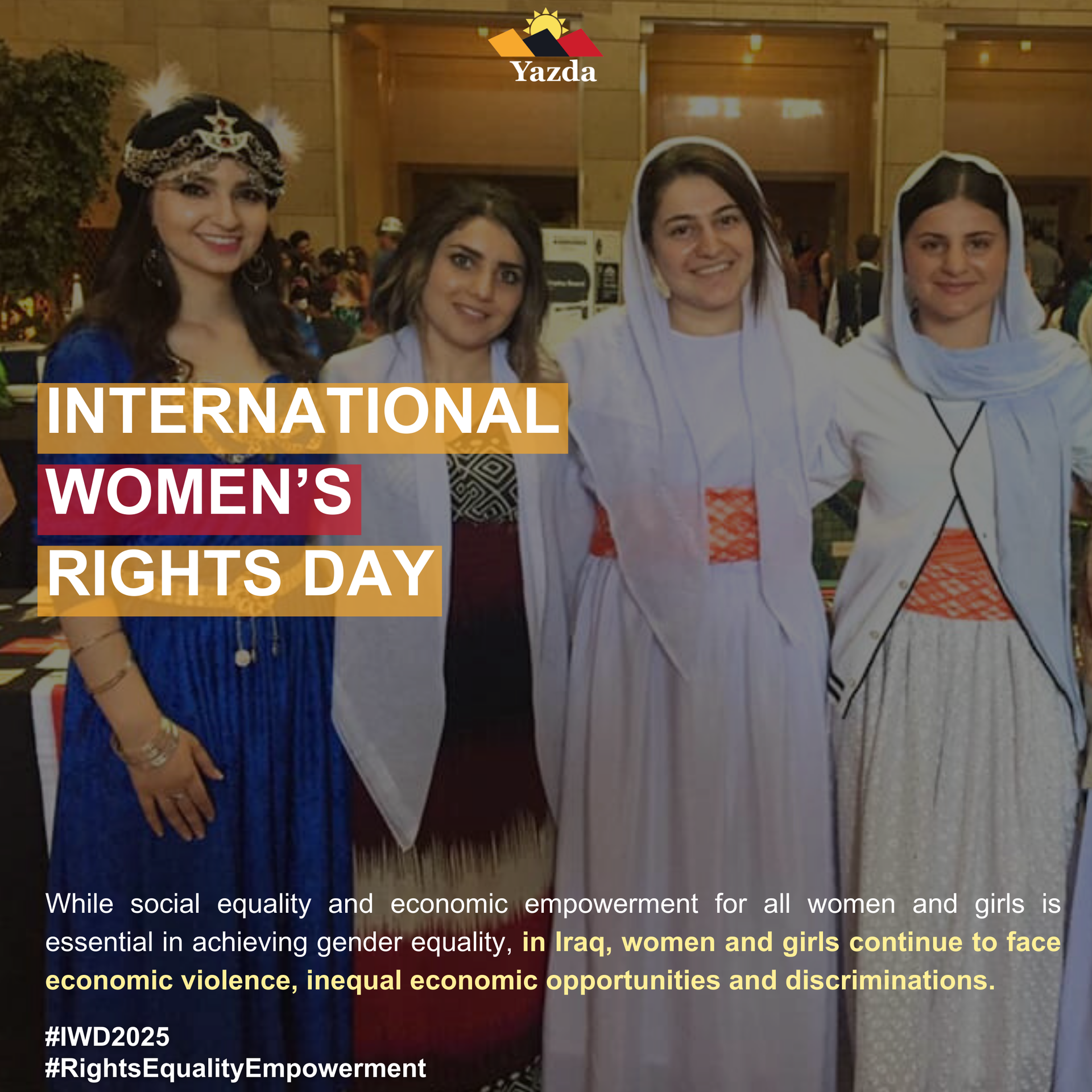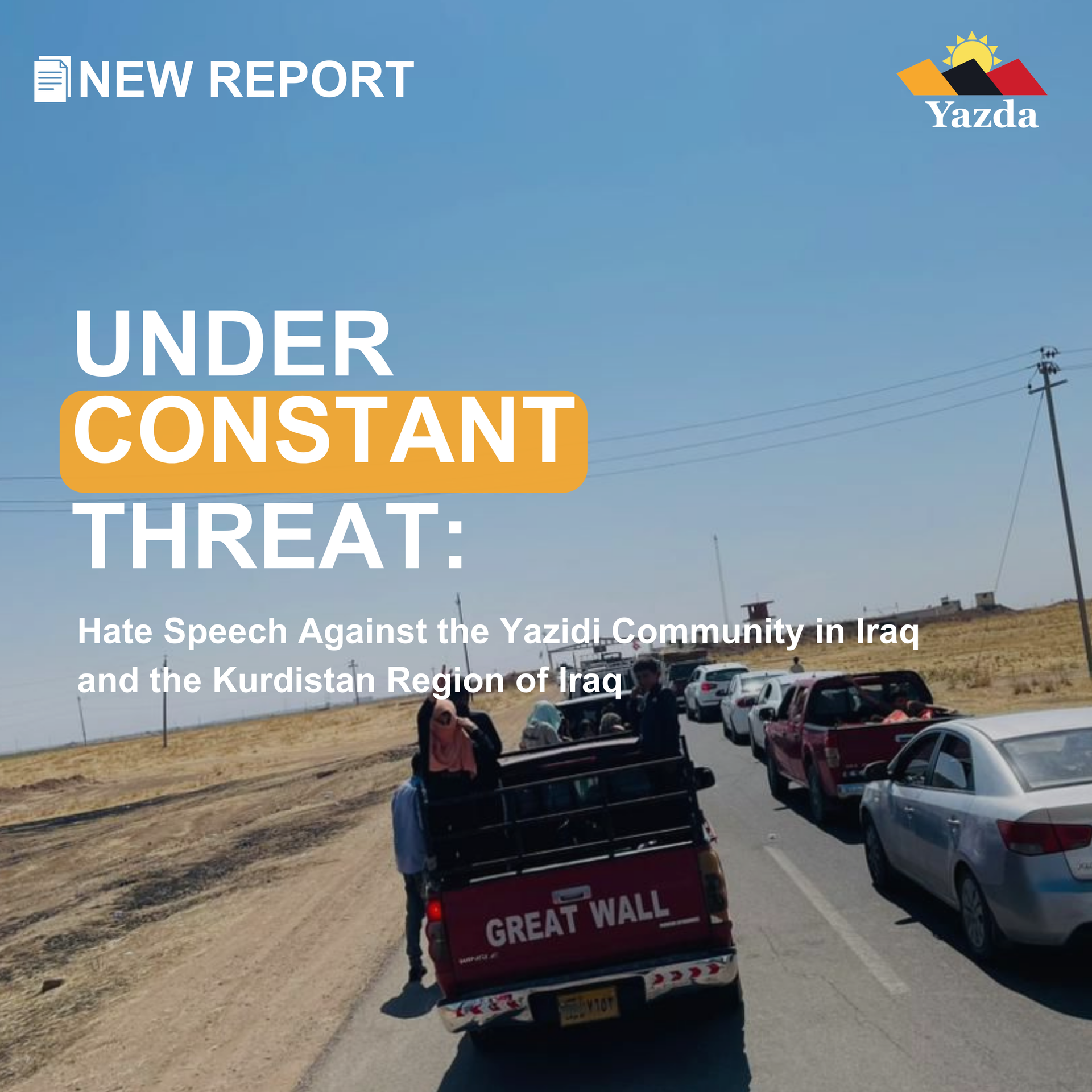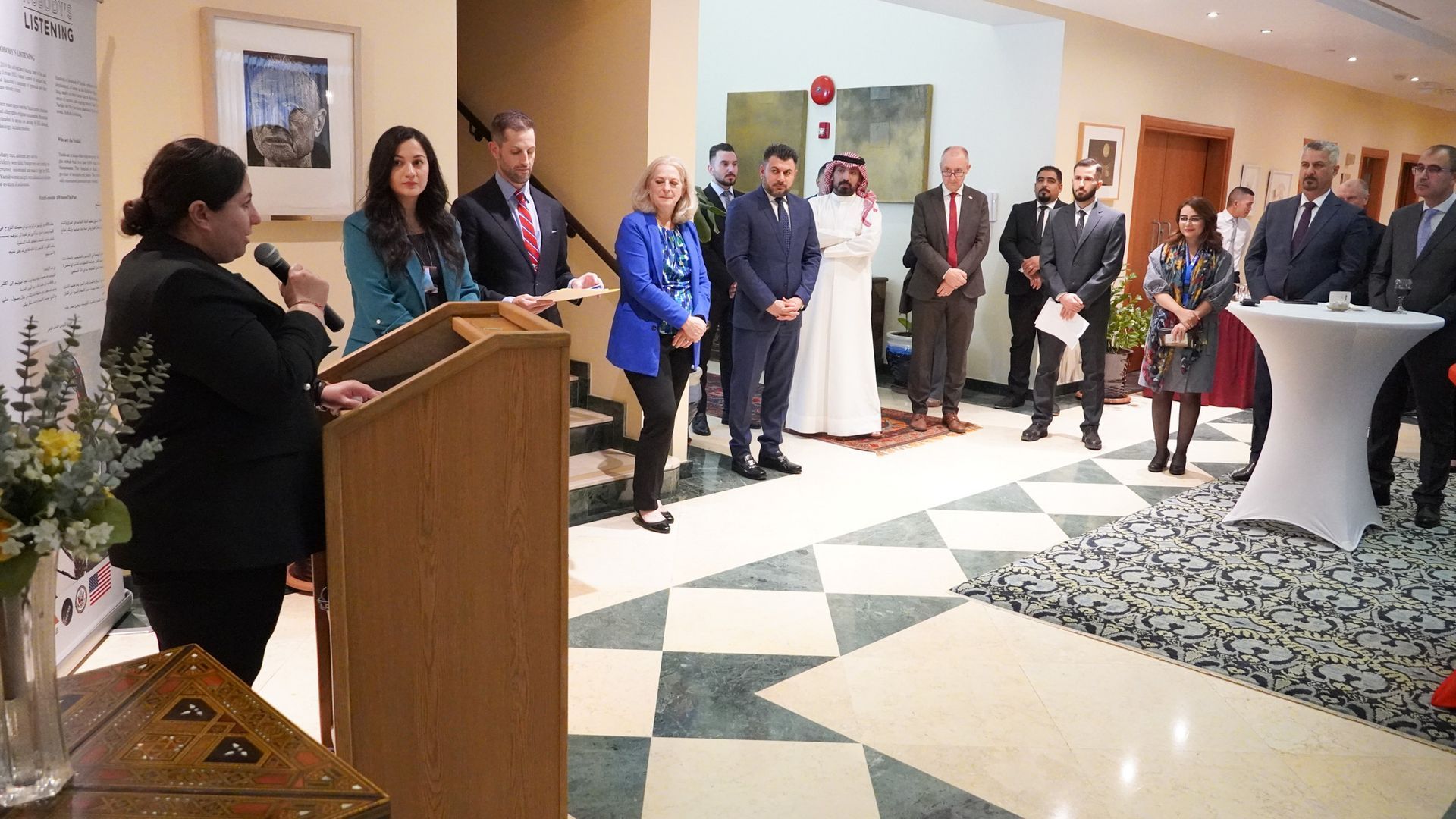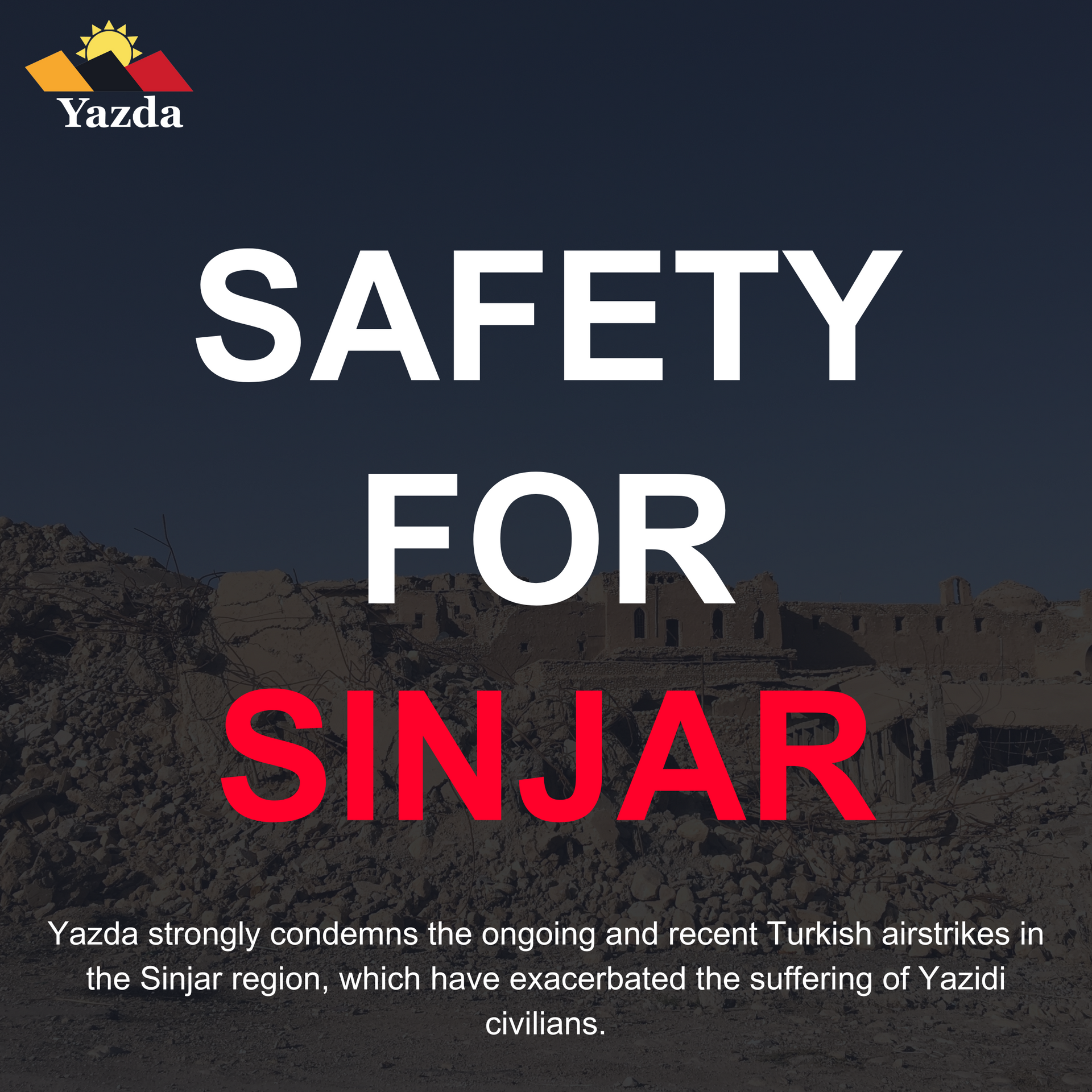For minorities and survivors of atrocity crimes
Yazda is a global community-led institution that protects and champions all religious and ethnic minority communities, including Assyrians, Chaldeans, Kakais, Shabaks, Yazidis, and others in Iraq, Kurdistan Region, and Syria.
Founded in 2014 at the onset of the genocide perpetrated by the Islamic State of Iraq and Syria (ISIS), also known as Islamic State in Iraq and Levant (ISIL) or Da'esh, against the Yazidis, as well as war crimes and crimes against humanity against other minorities, Yazda leads advocacy and strategic projects in Dohuk, Sinjar, and the Nineveh Plains (Iraq), as well as global diaspora hubs.
Yazidi Genocide
Latest Updates
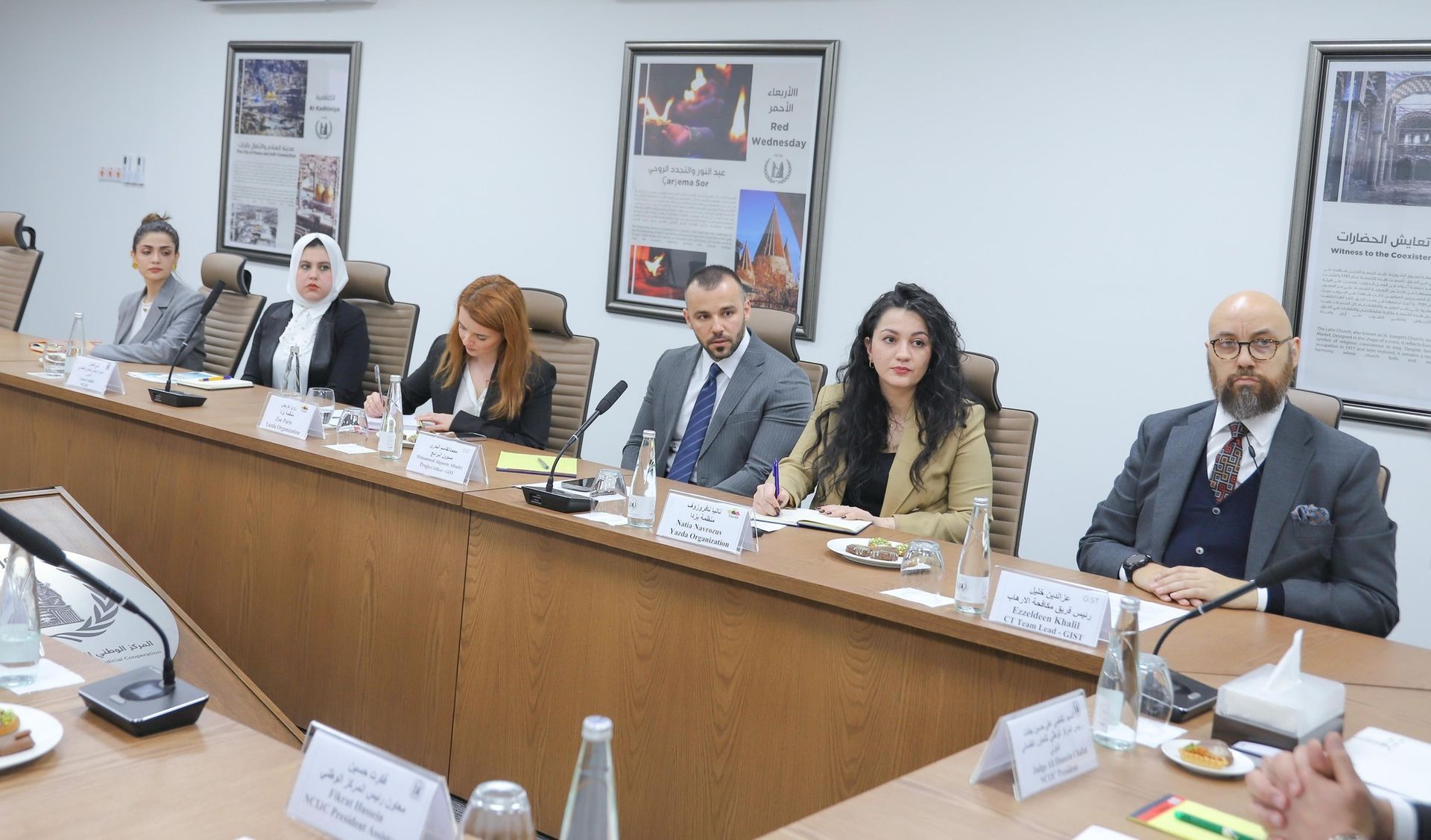
Baghdad, 12 February 2025 Yazda's Executive Director, Natia Navrouzov, met with Judge Ali Hussein Jafat, President of the National Center for International Judicial Cooperation (NCIJC), and his team to discuss pathways toward justice and accountability for ISIL crimes in Iraq. Hasan Jamil Khalid from the Coalition for Just Reparations (C4JR), the meeting’s organizer, was present as well as William Warda from Hammurabi Human Rights Organization and Yazda's Head of Programs, Zoe Paris. The NCIJC was established under the Iraqi High Judiciary following the closure of the United Nations Investigative Team to Promote Accountability for Crimes Committed by Da’esh/ISIL (UNITAD) in September 2024. The center’s mandate is to continue UNITAD’s work, focusing on delivering justice and accountability for crimes perpetrated by ISIL. This meeting marked the NCIJC’s inaugural engagement with civil society organizations (CSOs) in Iraq. All participants underscored the importance of building robust partnerships between the center and CSOs to ensure the justice process in Iraq remains survivor-centered and transparent. During the discussions, Yazda’s Executive Director raised several critical points: ● Pursuit of Justice Post-UNITAD Closure: Despite UNITAD’s departure, affected communities maintain hope for justice regarding international crimes committed in Iraq. Natia Navrouzov emphasized that Iraq must take the first step by passing legislation to criminalize core international crimes (war crimes, genocide and crimes against humanity). In response, Judge Ali Hussein Jafat noted that until such a law is adopted, prosecutions for international crimes will proceed using Anti-Terrorism Law No. 13 of 2005 alongside provision 7 of the Yazidi Survivors Law. ● Ensuring Survivor Safety and Informed Consent: The center must guarantee the safe participation of survivors in judicial processes, including the full implementation of witness protection measures. Survivor testimonies must be handled with the utmost care and confidentiality, shared only with their informed consent. ● Concerns Over the General Amnesty Law: The Yazidi community expressed significant concern about the potential implications of the general amnesty law, fearing it could lead to the release of ISIL members currently imprisoned in Iraq. The Supreme Judicial Council has the next day issued a statement addressing these concerns and providing clarification on scope of the amnesty law which can be accessed here: Supreme Judicial Court Statement . Yazda remains committed to continued engagement with the NCIJC to ensure that avenues for prosecuting international crimes and securing justice for ISIL survivors are firmly established and upheld in Iraq. -END- Read this Press Release in Arabic here . For media inquiries, please contact: info@yazda.org About Yazda: Yazda is a non-governmental, non-profit organization that was established in 2014 in response to the genocide committed by the self-declared Islamic State (ISIS) against the Yazidis and other minorities in Iraq. Yazda manages a portfolio of humanitarian, justice, advocacy, and development-related projects, all of which are community and survivor-centered in terms of design and implementation. Since its inception, Yazda has been working with local and international partners to provide humanitarian, accountability, and advocacy services to vulnerable minority groups in Iraq in their post-genocide recovery. The organization has been operating in Iraq since October 2014 and has main offices in Duhok in the Kurdistan Region of Iraq and a branch office in Sinjar in Nineveh Province. Yazda is registered as a non-profit organization in the United States, the United Kingdom, Iraq, Kurdistan Region of Iraq. Over the past 8 years, Yazda has grown to employ around 80 staff on average, received support from numerous donors, both institutional and individual, and has reached tens of thousands of direct and indirect beneficiaries through its programs and initiatives.
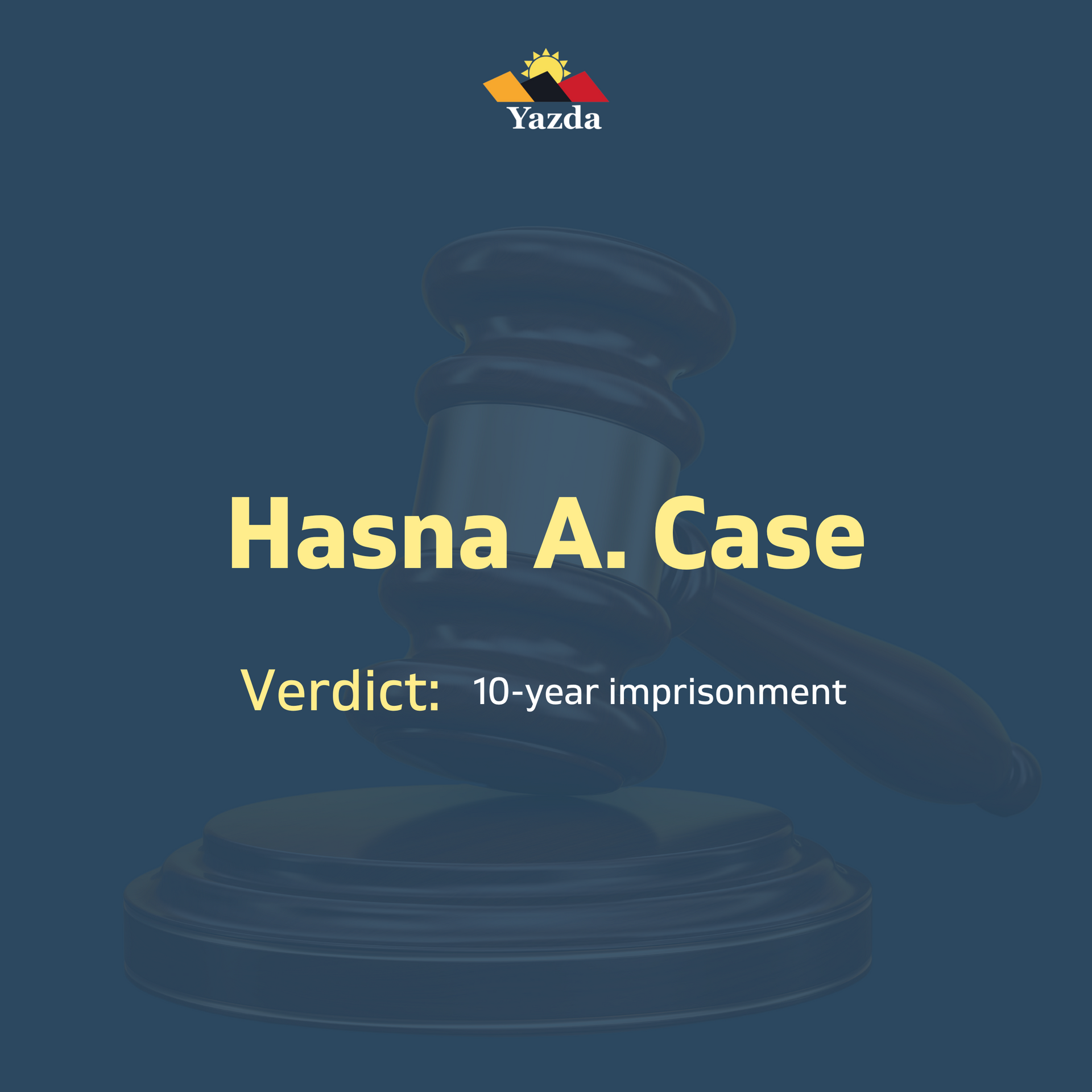
11 December 2024 Today, the international crimes division of the District Court of The Hague handed down the verdict in the Hasna A. case . It is the first trial in the Netherlands in which a member of the so-called Islamic State in Syria and the Levant (ISIL, also referred to as ISIS, IS, or by its Arabic acronym Daesh) has been convicted for crime committed against Yazidis. Hasna A., a Dutch national, travelled to Syria in 2015 with her four-year-old son, married an ISIL-member and lived in the ISIL-controlled city of Raqqa. She was tried for charges related to membership of ISIL, a terrorist group, as well as for endangering her son by bringing him with her to Syria and keeping him there. Importantly, Hasna A. also stood trial for the use of two Yazidi women as domestic slaves. The Yazidi women –referred to throughout the criminal proceedings only as ‘Z.’ and ‘S.’— had been enslaved by ISIL in August 2014. They were enslaved and kept in several houses where Hasna A. stayed whilst living in Raqqa in 2015 (Z.) and 2016 (S.), and Hasna A. forced them to perform domestic chores. Hasna A. also forced Z. to look after her four-year-old son. The slavery charges were brought against Hasna A. as crimes against humanity. Hasna A. is one of twelve Dutch women who had been repatriated from detention camps in Northern Syria at the end of 2022. She was arrested upon arrival in the Netherlands and taken into pretrial detention, appearing before the Trial Panel every three months. The Trial Panel had referred the case to the investigating judge and further investigation took place into the charges, which included hearing both Yazidi women as witnesses in 2024. The substantive hearings in the criminal proceedings against Hasna A. took place before the Trial Panel on 14, 16 and 17 October 2024. In today’s verdict, the court sentenced Hasna A. to a 10-year prison sentence for four offences: enslaving Z. in Syria in 2015, membership to the terrorist organization ISIL, promoting terrorist crimes and endangering her minor son. The court held that the enslavement of Z. amounted to a crime against humanity. The sentence is higher than the demand of the public prosecutor, who had demanded a prison sentence of eight years. The slavery charges against S. were not proven and Hasna A. was acquitted in relation to this offence. The verdict is available in Dutch and an English translation will be available soon. The two Yazidi survivors Z. and S. who participated in the trial as victims (survivors), injured parties and witnesses to the facts were accompanied by Yazda and supported throughout the process with translation, mental health and awareness support. The arrest, prosecution and trial of Hasna A. sends a clear message that, like other countries applying similar universal jurisdiction principles, the Netherlands will not be a safe haven for ISIL perpetrators. With today’s conviction, the Netherlands becomes the second country in the world to convict an ISIL-member for international crimes committed against Yazidis, looking beyond terrorism. Z. commented : "Our dream has finally come true, and we’ve achieved the result we longed for. This woman, Hasna A., caused us immense harm, and now it’s time for justice to prevail. Holding individuals accountable for their actions is a vital part of the justice process." S. added: "Honestly, I’m truly relieved to see justice finally served. However, a 10-year prison sentence feels insufficient and will never fully compensate for the suffering we have endured.” The outcome of this trial would have also not been possible without their legal representatives, Brechtje Vossenberg and Barbara van Straaten from law firm Prakken d’Oliveira Human Rights Lawyers in Amsterdam (the Netherlands). Brechtje Vossenberg commented: “It is thanks to the bravery and resilience of women like Z. and S. that the court was able to hand this verdict down and convict Hasna A. for the international crime of slavery committed against Z. Despite the disappointment that the charges relating to S. were unfortunately not proven, the verdict still marks another milestone in the long road to justice for the Yazidi community. It is the first of its kind here in the Netherlands and an important signal that the international crimes committed against Yazidis will be prosecuted here whenever possible. My clients’ participation in this trial was crucial to the establishment of the truth and the measure of justice that was obtained here today. I take my hat off to them both.” The Dutch court took a groundbreaking approach by providing online access to the substantive hearing sessions in both Dutch and Kurdish Kurmanji. This allowed survivors abroad and those who were unable to attend the hearings in person, to follow remotely both the substantive hearings in October and the pronouncement of the judgement today. Yazda facilitated screenings of the trial in Duhok (Kurdistan Region of Iraq) and Sinjar (Federal Iraq) where most of the global Yazidi community members currently reside. Around 40 members of the Yazidi community, including family members of one of the witnesses in the case attended the events and were, for the first time in a decade, able to witness justice in action. Following the verdict, one participant commented: “We want ISIL criminals to face fair sentencing, and we hope other countries will follow the Netherlands’ example in prosecuting these criminals.” Another added: “Other trials should be accessible online, and survivors in those countries should be invited to attend.” This trial is another milestone in the quest for justice by ISIL survivors. It is also only the 10th conviction worldwide of an ISIL member for crimes against Yazidis, a decade since the start of the genocide. Indeed, 9 convictions were handed down in Germany so far, including three for genocide. Recently, Sweden and France have initiated legal proceedings against alleged ISIL members for their involvement in crimes against Yazidis, signaling an important step in holding perpetrators accountable in a broader international context. However, the recent and abrupt closure of UNITAD on 17 September 2024 might jeopardize ongoing investigations and trials in third countries as the question of the accessibility of the evidence has still not been resolved. Natia Navrouzov, Executive Director at Yazda commented: "We commend the Dutch authorities and everyone who supported this case. Witnessing survivors follow the livestream of the verdict today from our offices in Duhok and Sinjar was a powerful reminder of the purpose behind our work, as it is ultimately for them. We are deeply proud of Z. and S., whose courage in coming forward made this case possible. While we are immensely relieved that Hasna A. has been convicted for her crimes, we had hoped the slavery charges concerning S. would also be fully acknowledged." ### Read the Arabic press release here. Download this English press release here. For media inquiries, please contact: Tonny Omondi Media and Communications Coordinator e: tonny.omondi@yazda.org About Yazda: Yazda is a non-governmental, non-profit organization that was established in 2014 in response to the genocide committed by the self-declared Islamic State (ISIS) against the Yazidis and other minorities in Iraq. Yazda manages a portfolio of humanitarian, justice, advocacy, and development-related projects, all of which are community and survivor-centered in terms of design and implementation. Since its inception, Yazda has been working with local and international partners to provide humanitarian, accountability, and advocacy services to vulnerable minority groups in Iraq in their post-genocide recovery. The organization has been operating in Iraq since October 2014 and has main offices in Duhok in the Kurdistan Region of Iraq and a branch office in Sinjar in Nineveh Province. Yazda is registered as a non-profit organization in the United States, the United Kingdom, Iraq, Kurdistan Region of Iraq. Over the past 8 years, Yazda has grown to employ around 80 staff on average, received support from numerous donors, both institutional and individual, and has reached tens of thousands of direct and indirect beneficiaries through its programs and initiatives.
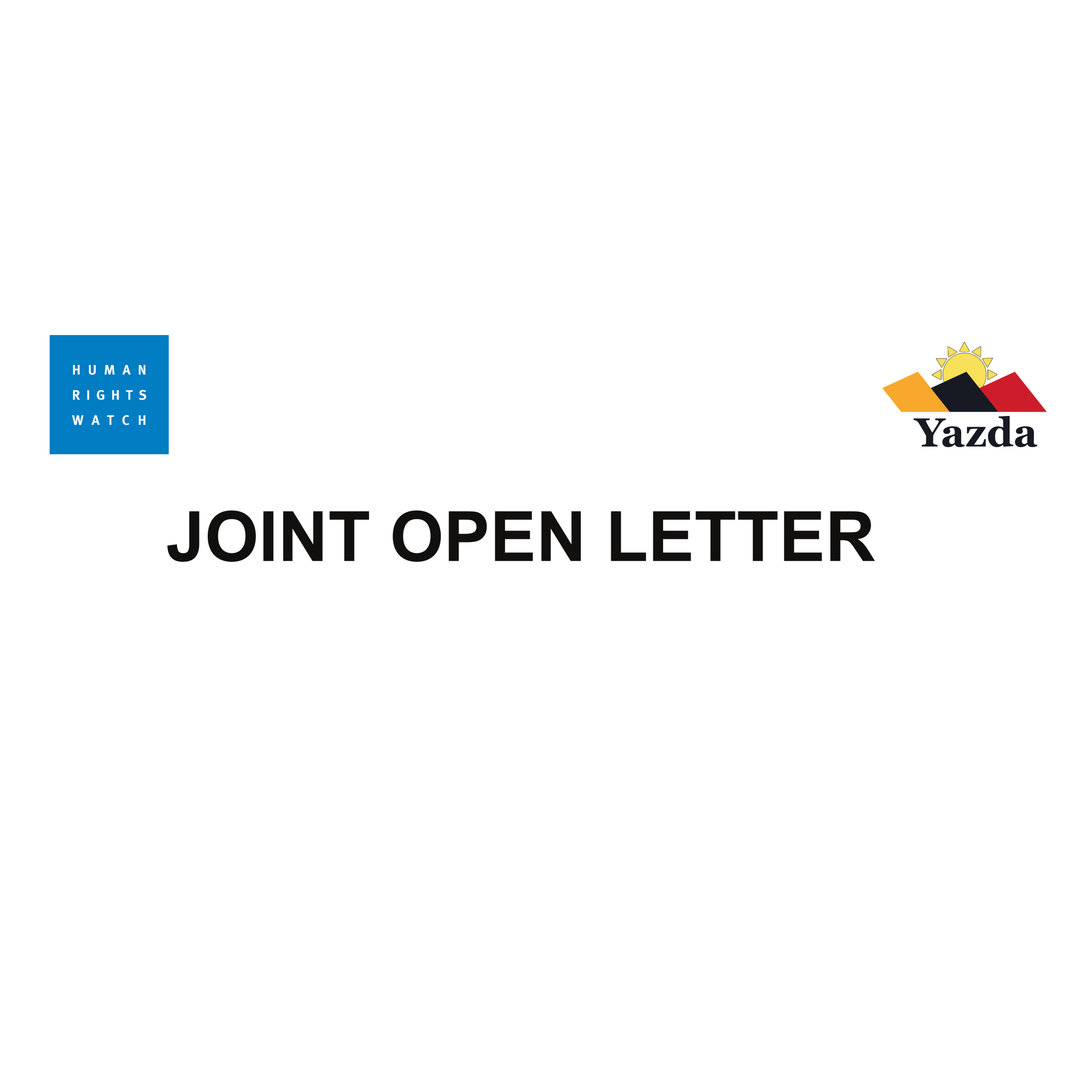
December 10, 2024. IRAQ- Human Rights Watch and Yazda condemn the wave of hate speech which targeted the Yazidi community in Iraq and the Kurdistan Region of Iraq (KRI) in August 2024. We are concerned by these acts that threaten the peace, safety, and coexistence that the Iraqi society strives to maintain. Coinciding with the tenth anniversary of the Yazidi genocide committed by the self-proclaimed Islamic State of Iraq and the Levant (ISIL), Yazidis in Iraq have been again subjected to waves of disturbing languages advocating hatred and inciting violence, hostility and discrimination. Such rhetoric has fuelled online attacks, insults and threats of violence and incitement to violence, with some messages ultimately calling for another genocide. These attacks created a sentiment of fear in the Yazidi community which is still coping with the trauma related to the genocide committed by ISIL from August 2014 onwards. Many Yazidis have reached out to Civil Society Organizations in fear of imminent attacks, and hundreds of families left the Internally Displaced People (IDPs) camps in the Kurdistan region to return to Sinjar by fear of violence in the KRI. The surge in hate speech illustrates the unresolved and unaddressed discrimination and systemic violence faced by Yazidis and other ethnic and religious communities in Iraq. The root causes of hate and violence committed against minority and indigenous communities in Iraq have never been addressed by Iraqi and KRI authorities, to ensure the crimes committed against them are never repeated. Human Rights Watch and Yazda unequivocally denounce hate speech against any religious, racial or national groups, and stand firmly against extremism in all its forms. The undersigned call upon the Iraqi government, the Kurdistan Regional Government and all other relevant authorities to take immediate and decisive action to ensure the safety and security of all ethnic and religious groups in Iraq, including from hate speech and other violent acts: To the Iraqi Government: Adopt a comprehensive law on the protection of minority rights in Iraq, including protection from online violence and other forms of advocacy of hatred, in accordance with international law and standards while ensuring that they do not unlawfully restrict the right to freedom of expression and freedom of press. Fully implement the Yazidi Survivors Law and develop a comprehensive plan for the next 5 to 10 years on the transitional justice process in Iraq, establishing the truth over the crimes committed and tackling the root causes of hate. Promote awareness and education and ensure the inclusion, in the education programs, of information on all the ethnic and religious groups in Iraq, their religion, culture and history. Include, in the history curriculum, a dedicated chapter on the genocide and other crimes committed by ISIL against minority groups. The Ministry of Education should ensure the participation of all ethnic and religious minorities in the creation and review of this curriculum, to ensure accurate self-representation. Foster interfaith dialogue between the various religious and ethnic communities in Iraq, by facilitating open dialogues and awareness campaigns that challenge divisive and violent narratives and promote mutual respect. To the Kurdistan Regional Government: Enforce the Kurdistan Region's Law on Minority Rights by focusing on strengthening enforcement mechanisms essential to protecting minority groups. Ensure the protection of minorities from online violence and hate speech, while preserving freedom of speech, freedom of press and freedom of expression. The Ministry of Education should ensure the participation of all ethnic and religious minorities in the creation and review of this curriculum, to ensure accurate self-representation. Issue clear guidelines and ensure the provision of training by the Ministry of Endowment and Religious Affairs to religious leaders to counter stereotypes, eradicate discrimination and foster greater equality, including on ways of preventing hate speech and promoting the rights of minority groups. Ensure inclusion, in the education programs, of information on all the ethnic and religious groups in Iraq and the Kurdistan Region of Iraq, their religion, culture and history. Include, in the history curriculum, a dedicated chapter on the genocide and other crimes committed by ISIL against minority groups. To META and other big tech companies: Take urgent steps to address instances of hate, racism and misinformation on online platforms to ensure that they do not cause or contribute to human rights abuses. Remove content including videos, posts, photos and comments that incite violence, hostility or discrimination against specific groups with protected characteristics and suspend the accounts of repeated offenders. Preserve an archive of human rights violations and abuses that may have evidentiary value, and provide access to data for independent researchers and investigators, including those in the fields of human rights, while protecting user privacy. Adequately staff and resource moderation teams must include staff fluent in various Arabic and Kurdish dialects and with a deep understanding of regional issues. The moderation teams and any automated tools they use must be trained to effectively reduce the spread of hate speech and violence in the different languages, including in Kurdish and Arabic. Engage meaningfully with organizations defending the right of the Yazidi community to develop policies and features, from design to implementation and enforcement, including on content moderation and trust and safety strategies that prioritize addressing incitement to violence, hostility, or discrimination against the Yazidi community. Companies should be proactively prepared to address waves of hate speech that may arise during particular times, including the commemoration of the genocide. To the International Community: Acknowledge and condemn the ongoing advocacy of hatred that incites violence and discrimination against the Yazidi community and monitor developments closely. Support the implementation of the Yazidi Survivors Law and additional transitional justice measures in Iraq and the KRI and support the passage of a law by the Iraqi Parliament on the protection of minority rights in Iraq. Ensure that the hate speech and other forms of violence and systemic discrimination faced by Yazdis in Iraq up until today are taken into account when assessing the protection claims of Yazidis. Support projects aiming at tackling the root causes of violence and hate through education, awareness and dialogue. Finally, we urge Iraqi citizens to stand in solidarity with the Yazidis and all minority groups, fostering an environment of mutual respect and peaceful coexistence. Iraq and the Kurdistan Region of Iraq’s strength lies in its diversity, and all actors should work together to protect and celebrate this diversity. Human Rights Watch and Yazda remain committed to continuing our efforts to promote human rights, justice, and reconciliation. Read this open letter in Arabic here . Download the English letter here . We look forward to receiving your inquiries at media@yazda.org
Important announcement for survivors of ISIL crimes living in France and Germany and wanting to apply to the Yazidi Survivors’ Law
